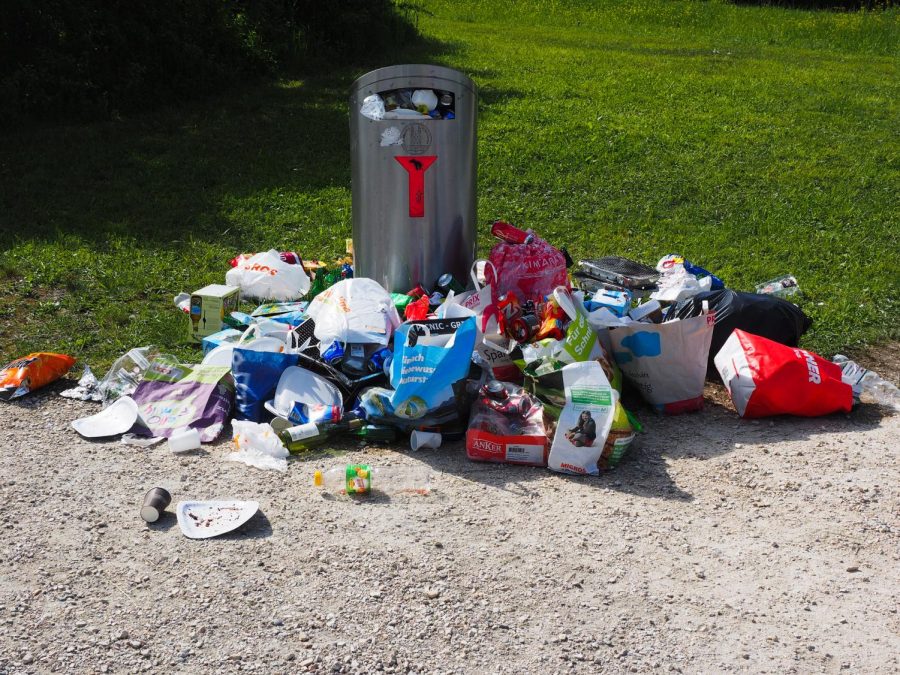Ban plastic bags to preserve the pretty Palouse
Proposed legislation would reduce litter, help local business; support these bills for cleaner community
The accumulation of waste is a serious hazard to the health of any environment, not to mention being an eyesore. Banning plastic bags is the first step to stopping this overflow from becoming worse than it already is.
March 7, 2019
If plastic bags are banned, it will significantly benefit the Pullman community, and any legislature working toward this should be supported.
There are only a few minor changes needed to address this issue, a small price for preserving the environment around the Palouse and elsewhere.
Requiring local storekeepers to charge per paper bag will make it easier for businesses in Pullman to deal with disposal. Currently, stores have plastic containers where customers can return their plastic bags after using them. Workers are then responsible for sorting paper and plastic bags, then transporting them to a recycling facility. These facilities lack accessibility in Pullman and need to be shipped elsewhere.
Devon Felsted, president of the Pullman Recycling Center, believes it would be better if no one used plastics bags in stores.
“We don’t take plastic bags at our recycling center,” Felsted said. “Walmart, Safeway and Dissmores take plastic bags and recycle them themselves.”
If the city charged customers for paper bags, it would incline more people to opt for reusable bags when buying groceries. In the long run, reusable bags are more cost-efficient than paper or plastic bags and reduce the amount of waste made daily.
Even paper bags should come with an additional charge so more people will be dissuaded from their use. Reusable bags are then made a more economical and ecologically friendly option.
“If less people are able to get paper bags, it would make it more difficult for people to get paper bags to begin with,” Felsted said. “The less opportunity people have to use paper bags, the better.”
A ban on plastic bags will also make recycling bags easier for residents among other items. Instead of having to dispose of bags from the grocery store separately, they would be able to recycle the paper bags along with everything else and keep reusable ones for later. It requires only slightly less effort, but it’s a major difference when waste disposal isn’t on the top of everyone’s to-do lists.
“People were just throwing [plastic bags] away once they got them,” Felsted said. “It is kind of upsetting when you see plastic bags blowing around the area, seeing how much damage they can do to the environment.”
State lawmakers are considering two proposed bills that would reduce the consumption of plastic, and both at least begin to address the issue. House Bill 1205 and Senate Bill 5323 are proposed as a ban on the distribution of plastic bags, limiting the amount of plastic waste build up. Washington state stores would also charge customers 10 cents for a paper bag or provide the option of buying a reusable one.
The impact the reduction of plastic bags in Washington would have on the environment alone is reason enough to support these bills. Reach out to your local legislature to express your support for this bill and the benefits it will have on our lives makes sure our legislature takes these points into consideration when deciding on these bills.
The benefits derived from the banning plastic bags are statewide, but affect Pullman in particular. Locally, a ban on plastic bags is a business-savvy option. Pullman retailers would no longer be responsible for plastic bags being returned to their stores. Replacing plastic bags with paper bags would also make it easier for people to recycle generally, as the Pullman Recycling Center accepts paper but not plastic. More importantly, a ban on plastic bags would reduce the environmental harm caused by littered plastic bags.
To preserve the fragile beauty of the Palouse, we should all be aware of the impact ban on plastic bags would have in preserving this area.








